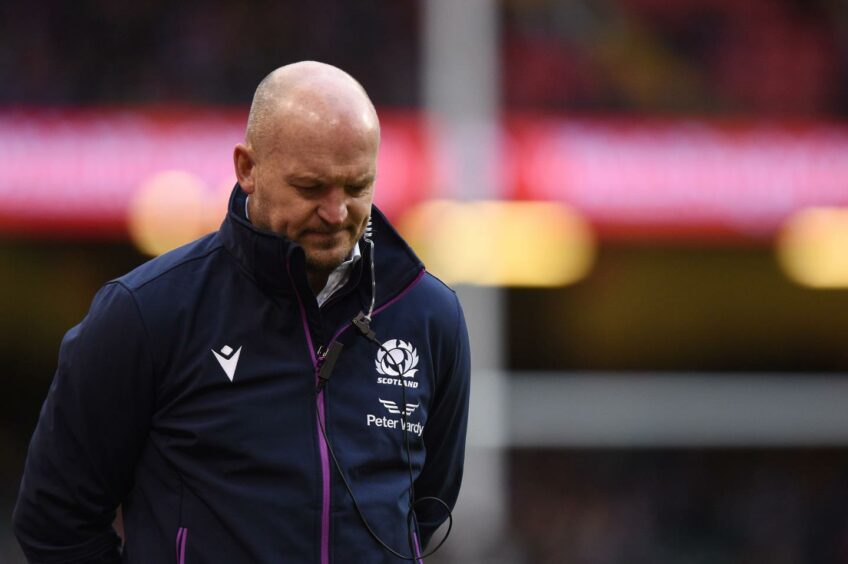Back in the early 2000s, when I was still covering rugby on a regular basis, there were times where Murrayfield seemed to have employed enough press officers to launch their own Sevens team.
One after another, the spate of media releases would arrive about school games, under-20 matches, accreditation requests, refereeing appointments, coaching and committee shake-ups, occasional sad news of a former internationalist’s demise and – increasingly – wall-to-wall coverage of the latest coughs, grunts and splutters from the Scottish professional teams.
In these days, as the districts struggled to draw big crowds – and the experiment of creating a Borders collective fell flat on its face – there was invariably a sense of the governing body devising policy on the hoof, and trying to paper over the cracks of the club game in their homeland.
All their efforts, all their intense concentration, revolved around moving towards the slogan or hashtag #AsOne; the idea that, no matter what part of Scotland you came from, whether male or female, young or old, long-time rugby aficionado or newly-converted supporter, you recognised that the national side should be the biggest priority in the sport.
It was a dubious theory at the best of times.
After all, without a vibrant grassroots circuit, how can you keep developing the next generation of players who will keep advancing at the highest level?
But, from the perspective of the SRU bean-counters, it made sense to talk up Glasgow and Edinburgh and promote them, effectively, as Scotland A and B organisations.
Yet, once again this week, we’re talking about another false dawn in the Six Nations Championship, another season which promised much, but has so delivered precious little in successive defeats to Wales and France.
The first of these losses was immensely frustrating, but there again, it doesn’t appear to matter which coach is in charge once the Scots arrive in Cardiff.
On Saturday night, just hours after Les Bleus had completed an emphatic and clinical 36-17 win at Murrayfield, social media was awash with prattle about bad refereeing decisions or close things for the hosts at Murrayfield.
A lot of other people highlighted the brilliance, brio and Bollinger-style action of the French and talked them up as the favourites for the next World Cup.
And, you know something, I’m getting more than a little fed up with this response whenever the Scots come a cropper.
In simple terms, the same old mistakes and Achilles heels keep recurring, to the stage where it should no longer be acceptable to seek refuge in bland excuses or players issuing apologies to those who paid an awful lot of money to be present in Edinburgh while their heroes shipped half-a-dozen tries.
Yes, Fabien Galthie’s men are a formidable force, blessed with abundant quality in their pack and their backs. But that doesn’t explain the litany of basic errors, fumbles and indiscipline perpetrated by the hosts.
It doesn’t offer a reason as to why Stuart Hogg messed up a 3-1 advantage by going for the ambitious option when keeping it simple would surely have brought the Scots a try at a time when the outcome was still in the balance.
I’ve almost grown inured to receiving criticism for “negativity” from some in the rugby and cricket realms.
It was far worse in the 1990s when I recall being labelled the “Great Satan” for fighting against the ill-judged and near-ruinous commitment by the SRU to establishing four professional teams, with more than 100 players on contracts.
It was economic madness, but the strategy also testified to the governing body’s tendency to be control freaks in their dealings. Hence, all the recruitment of PR staff and endless communiques from their desks.
Only praise when it’s deserved
Meanwhile, clubs were left to wither on the vine, and myriad volunteers who had worked hard behind the scenes, gradually drifted away from the circuit, disillusioned by the SRU not only buying into the pro scene, but bankrolling it and running it for the benefit of two central belt teams at the expense of everybody else in the north, the north-east, the south-west and the Borders.
And now, we are all supposed to be #AsOne? Win or lose, whatever the circumstances and regardless of repeated failings, we’ve just to keep cheering? Well, count me out.
When Gregor Townsend’s tactics and his players rise to the occasion and the parts come together, that merits applause and the sort of ovation we witnessed in the closing stages of the Calcutta Cup last month.
But when – and this is still a more regular occurrence – chances are butchered, opponents are let off the hook and victory isn’t achieved, Townsend and his troops should be subject to the same scrutiny as anybody else.
At the moment, too many people are giving them an easy ride on an expanding gravy train.
In simple terms, if the Scots don’t beat Italy and Ireland in Rome and Dublin later this month, their Six Nations campaign will be a failure.
And while they shouldn’t face many problems from the Azzurri, the Irish will be a different matter altogether. No matter the officials, the weather or any other factor.
Ultimately, Scotland’s administrators chose to fling everything at the elite. The rest of us are fully entitled to ask hard questions about that decision.




